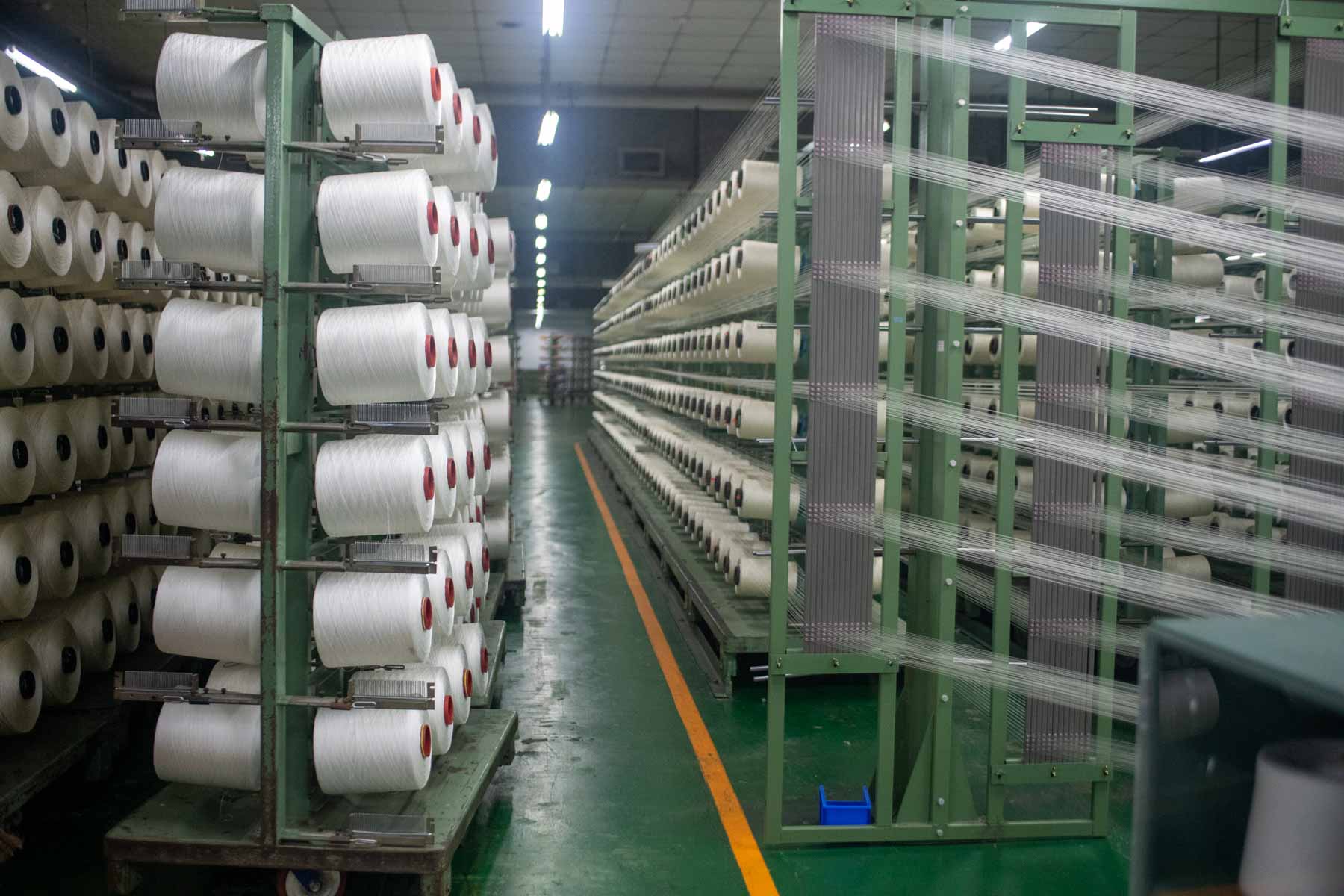
Artikel
23
oktober
Your Bike Tires Could Soon Be Made from Recycled Fishing Nets
Soon, your bike tires could be made from an unexpected source: fishing nets.
When you think of what bicycle tires are made of, you probably imagine rubber. While that’s true, beneath that rubber tread is also a nylon carcass providing strength and shape to the tire.
Nylon is made from oil, and in a cycling industry increasingly concerned with its environmental footprint, figuring out a way to mitigate some of that oil use represents an opportunity to make a significant change.
That change appears to be underway. Taiwan based Formosa Taffeta Co., a large supplier of tire core material to leading bicycle tire manufacturers, is helping move away from virgin oil in tires by recycling fishing nets into tire base.
Also read: One Less Car: Radpower Radwagon 4 Long Term Test
This will be familiar news for those who keep a close eye on the cycling industry. Maxxis announced a tire a little under a year ago made of recovered fishing nets, and has been showing it off at trade shows like Taipei Cycle in 2023. This has all been made possible by Formosa Taffeta Co.’s Seawastex material.
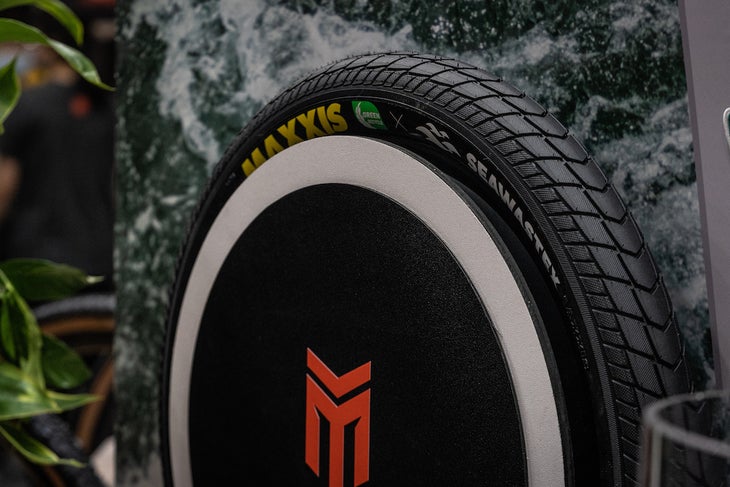
But Maxxis won’t be alone for long in using Seawastex. A Formosa representative says they have been working with two major bicycle tire manufacturers in Europe, one in Italy and another in Germany, on using the material as early as 2024, so let your imagination run wild at all the limited possibilities.
Factor in that the company works with just about every bicycle tire brand you can think of and that’s a lot of potential going forward to displace virgin oil with discarded material that otherwise would be trash floating in the ocean off the coast of Taiwan.
Less energy, less trash — a win-win
Seawastex is beneficial on multiple fronts. To make it, Formosa uses nets recovered from the ocean off the coast of Taiwan, removing literal tons of nets from the ocean, which means a cleaner ocean and less wildlife caught in rogue nets.
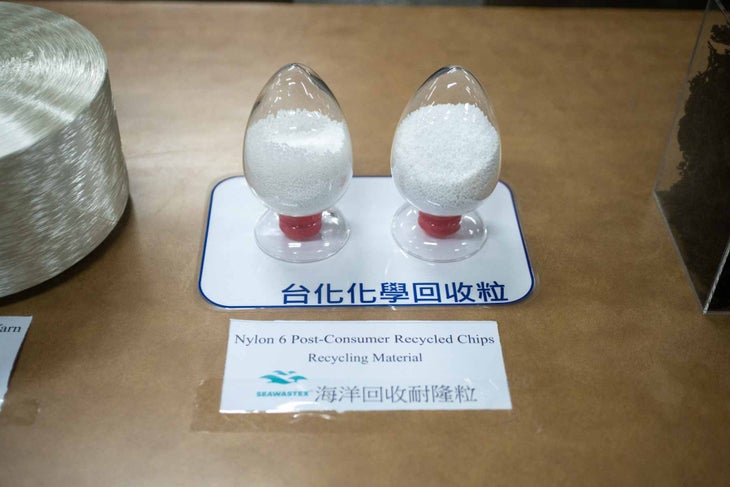
Then there’s the advantage of making nylon material from recycled nets versus starting fresh with oil. The brand says that making Seawastex emits 49 percent fewer carbon dioxide equivalent emissions and uses 15 percent less energy than tire core made from virgin oil.
Plus, there’s an added benefit that Formosa is able to source this material locally from Taiwan’s fishing industry, cutting down on emissions associated with transportation. (Unfortunately that also means there are a lot of fishing nets in the ocean.)
I visited the company’s sprawling Taiwan campus to see this recycled material come to life. After cleaning and sorting nets, Formosa Taffeta Co. is able to depolymerize the nylon back into the same starting material they otherwise make from virgin oil, then go through the same process to create new nylon yarn.
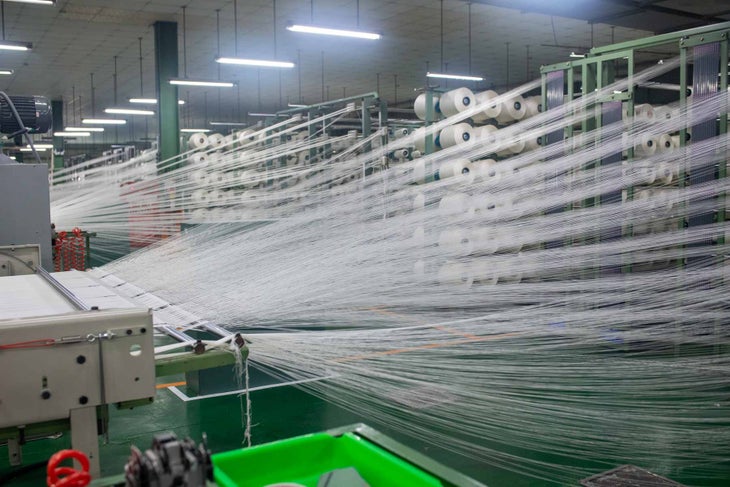
Giant spools of nylon arrive on their massive factory floor full of machines lined up neatly in rows. Fibers are twisted together on one massive floor. Then those twisted fibers are woven together into sheets of tire cord on another equally massive floor and dipped in a coating, ready to be made into tires.
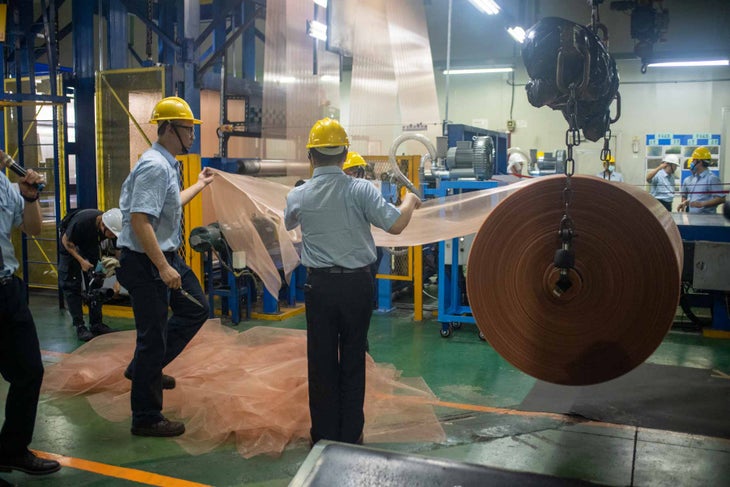
Same strength and quality as virgin material
Seawastex manages to create this recycled material without any significant loss in quality or strength compared to virgin materials.
In fact, across tests for breaking strength, elongation, heat shrinkage, and several other metrics, the recycled Seawastex material is nearly identical to virgin nylon 6 material in its performance.
Beyond the tire world, Formosa’s recycled nylon fabrics have already been proven for five years. It works with Patagonia to create its NetPlus material, also from recycled fishing nets.
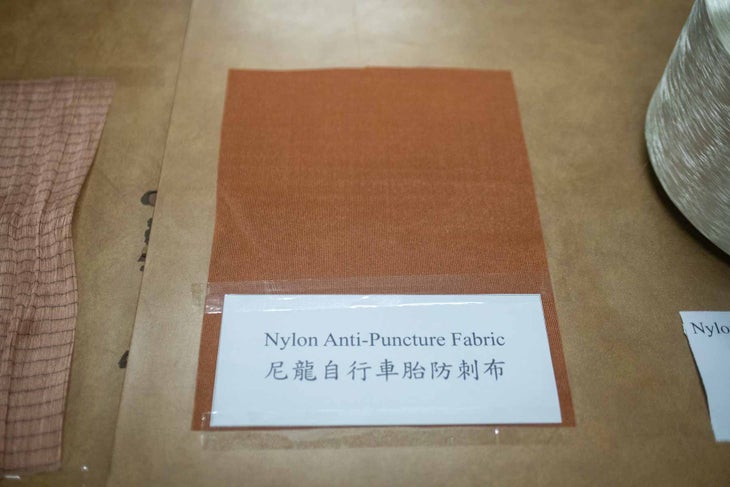
It needs to be noted that Formosa Taffeta Co.’s parent company is the Formosa Plastics Group which, among other things, owns a chain of gas stations and is involved in other petrochemical businesses, so there are many larger environmental concerns about the business as a whole. But for its bike tire material business, this is a helpful step in reducing environmental impacts.
Formosa Taffeta Co. will likely have more to share at the 2024 Taipei Cycle show in March. Keep an eye out in 2024 for announcements from major tire companies using Seawastex in tires.
What's your reaction ?
Follow us on Social Media
Recent posts

April 26, 2024
Aandachtspunten bij een geldlening tussen een ouder en een kind

April 26, 2024
Hoe gaat u de zorg organiseren en wat zijn de kosten?

April 26, 2024
Wonen met zorg: de belangrijkste aandachtspunten op een rij

April 26, 2024
Hoe werkt u als dga aan een zorgeloze financiële toekomst?

April 26, 2024
Belastingvrij schenken in 2024

 Inloggen
Inloggen
 Registreren
Registreren






Comments (0)
No reviews found
Add Comment